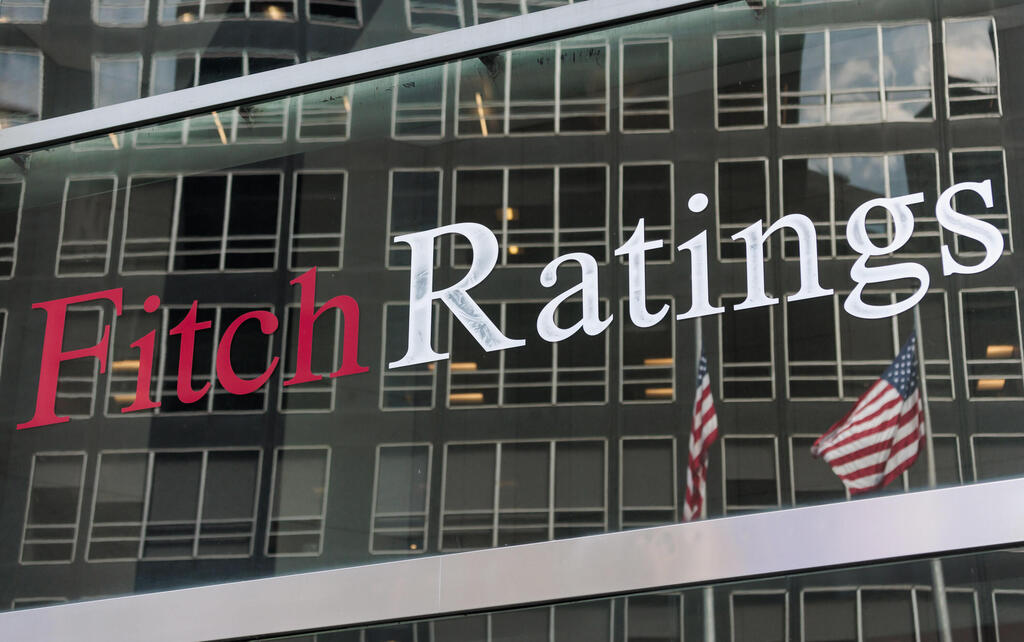Getting your Trinity Audio player ready...
The international credit rating agency Fitch has placed the State of Israel's credit rating, currently at A+, under "Rating Watch Negative". This decision was announced on Tuesday and follows a shift in the perception of geopolitical risk in the wake of the Swords of Iron conflict.
Read more:
The announcement signifies that the company plans to closely track security developments in the region over the next six months. If there is a significant deterioration in the security situation, this might result in a negative rating action. However, if such deterioration does not occur, the "negative watch" status will be lifted.
2 View gallery


Prime Minister Benjamin Netanyahu and Finance Minister Bezalel Smotrich
(Photo: Reuters/Amir Cohen)
Finance Ministry Accountant General, CPA Yaheli Rotenberg, clarified to Ynet that this is a deterioration in the rating outlook preceding a potential downgrade if the security situation, particularly in the northern sector, further worsens.
"We were already aware three days ago about a potential impact on Israel's rating, but at this point, it's a deterioration, not a downgrade. It indicates that Fitch still views Israel's economy as strong and stable, and there's no need for Israel to downgrade itself at this stage," Rotenberg explained.
The company's announcement indicates its concern that an escalation of the current conflict, particularly if it expands to a large-scale military engagement with multiple fronts over an extended period, could worsen fiscal figures. The company underscores that while this is not the primary scenario, if it were to occur it could lead to a sustained rise in government spending, a reduction in state revenues, harm to consumer and investor sentiment, and a deterioration in Israel's credit indices.
The company expresses its belief that the risk of the conflict expanding has significantly increased due to the frequent crossfire on the Lebanese border, as well as the statements made by senior officials in Iran and by Hezbollah. It clarifies that the cost of escalating the aforementioned conflict would be very high for Iran and Hezbollah, given the warnings from Israel and the US.
2 View gallery


The offices of Fitch Ratings in New York, New York, USA, 02 August 2023
(Photo: Justine Lane/EPA)
The company emphasizes in its announcement that due to Israel's dynamic, high-value economy, readiness for military conflict, history of resilience to such conflict, strong fiscal indicators, robust external accounts and substantial liquidity buffers, it is unlikely that a relatively short conflict, primarily confined to the Gaza Strip, will have an impact on Israel's rating.
The credit rating company Standard & Poor's (S&P), one of the three agencies that rate Israel, will send its economists over early next week. They have arranged meetings with the country's top economic officials, likely including the Minister of Finance, the Governor of the Bank of Israel, other economic leaders, and possibly the Prime Minister or his economic advisor. Following these meetings, S&P is expected to release a special report on Israel's economy.

